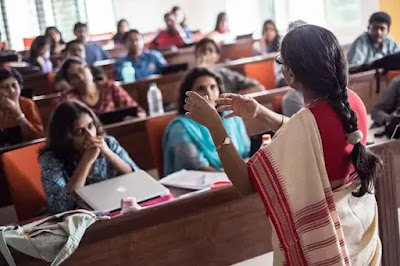The limits of experiential learning
The limits of experiential learning Guilty as charged , we evangelised experiential learning as the most appropriate education format to meet the demands of rapidly changing workplaces. Dismayed by over-reliance on uninteresting lectures with hundreds of slides, we emphasised practical enga gement. Our point was that the solitary content consumption, whether from books or from videos, does not allow anyone to prepare for rapid shifts in technology or workplace practices. Instead, the lear ners need to work with other people, as most work today is done in teams, and they should solve real-life problems, as only by application are thin gs really learnt. But there must be more than this if one is to create a learning experience in the twenty-first century. That application is a better way of learning than reading textbooks is rather well known. No one denies that experiential learning works better in preparing for practical work. Rather, it ...








